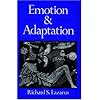 拉扎勒斯(1922-04
December 2002),
拉扎勒斯(1922-04
December 2002),
美国应激理论的现代代表人物之一,对情绪和适应作了大量的研究。关于应激反应的对付过程,他提出了认知评价的重要性,认为生活过程中的其它因素都是以认知评价为转移的。1989年获美国心理学会颁发的杰出科学贡献奖。
"Psychology is a huge, fascinating field of study, and faculty here are
interested in such wide-ranging topics as children's development of
language and social awareness; how genes interact with the environment
to produce both adaptive and maladaptive behavior; basic emotions,
ranging from anger to compassion and awe; how culture shapes the ways in
which people view the world; causes and treatments for mental disorders
like ADHD, bipolar disorder, and schizophrenia, as well as dementias;
social groups, conformity, dissent, and prejudice; and human memory and
the ways in which we perceive and act in the world. These only scratch
the surface of the interdisciplinary, cutting-edge work that we do. I
encourage you to view the many links here to learn about our research
labs and faculty projects, undergraduate and graduate teaching programs,
and our wonderful staff."
Received his PhD from the University of Pittsburgh, is professor emeritus at The University of California at Berkeley, pioneered research on the mediating role of appraisal in the phenomena of psychological stress, coping, and emotion, with McLeary developed the concept of subception, suggested cognitive appraisal (stimulus exposure has a cognitive effect before an emotional effect), author of numerous journal articles and books.
Dr.
Richard S. Lazarus, 80; Charted Terrain of Emotion
http://psychology.berkeley.edu/directories/faculty_l-r.html#lazarus
 Emotion and Adaptation
Emotion and AdaptationIn this landmark work, Richard Lazarus -- one of the world's foremost authorities -- offers a comprehensive treatment of the psychology of emotion, its role in adaptation, and the issues that must be addressed to understand it. The work provides a complete theory of emotional processes, explaining how different emotions are elicited and expressed, and how the emotional range of individuals develops over their lifetime. The author's approach puts emotion in a central role as a complex, patterned, organic reaction to both daily events and long-term efforts on the part of the individual to survive, flourish, and achieve. In his view, emotions cannot be divorced from other functions--whether biological, social, or cognitive--and express the intimate, personal meaning of what individuals experience. As coping and adapting processes, they are seen as part of the ongoing effort to monitor changes, stimuli, and stresses arising from the environment. After defining emotion and discussing issues of classification and measurement, Lazarus turns to the topics of motivation, cognition, and causality as key concepts in this theory. Next he looks at individual emotions, both negative and positive, and examines their development in terms of social influences and individual events. Finally, he considers the long-term consequences of emotion on physical health and well-being, and the treatment and prevention of emotional dysfunction. The book draws together the relevant research from a wide variety of sources, and distills the author's pioneering work in the field over the last forty years. As a comprehensive treatment of the emotions, the book will interest students, clinicians, and researchers involved in personality, social and clinical psychology, as well as cognitive and developmental psychology. It may also be used as a supplemental textbook in courses on the psychology of adjustment, emotion, and feeling.
